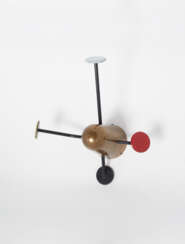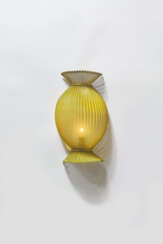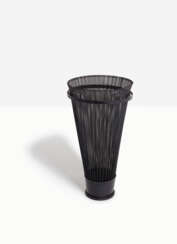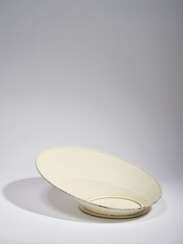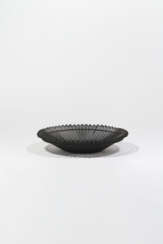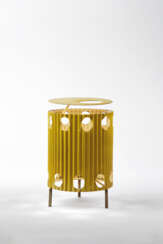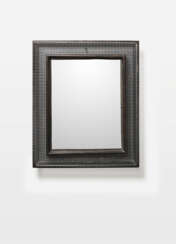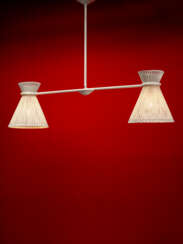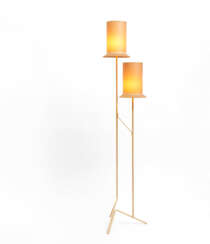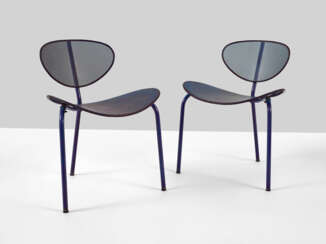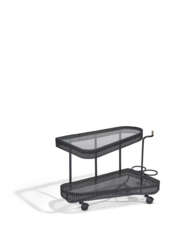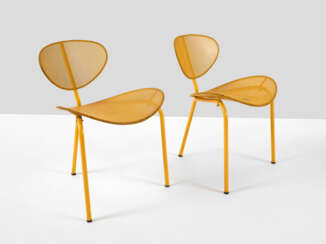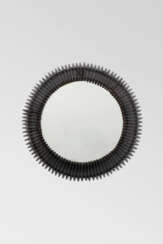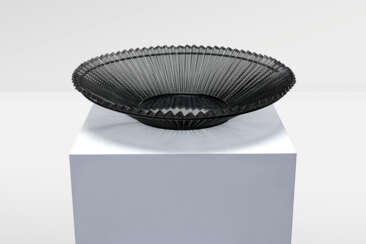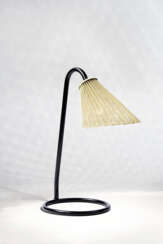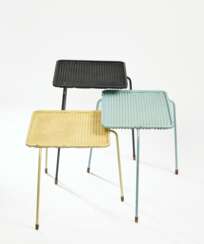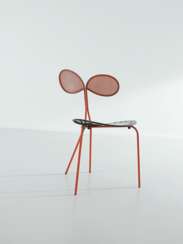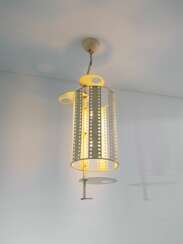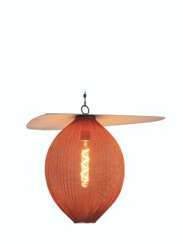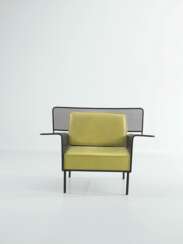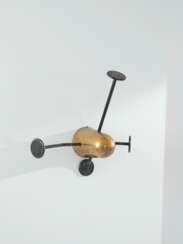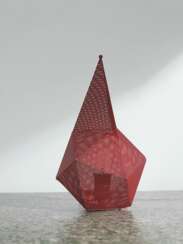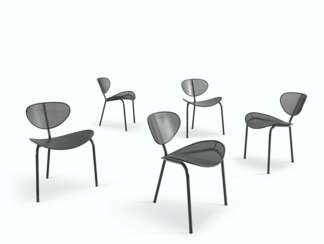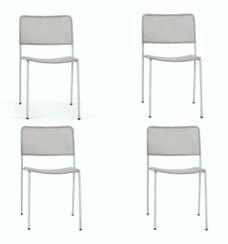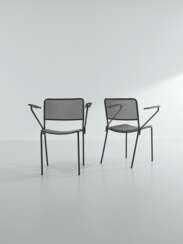mathieu matégot (1910 - 2001)
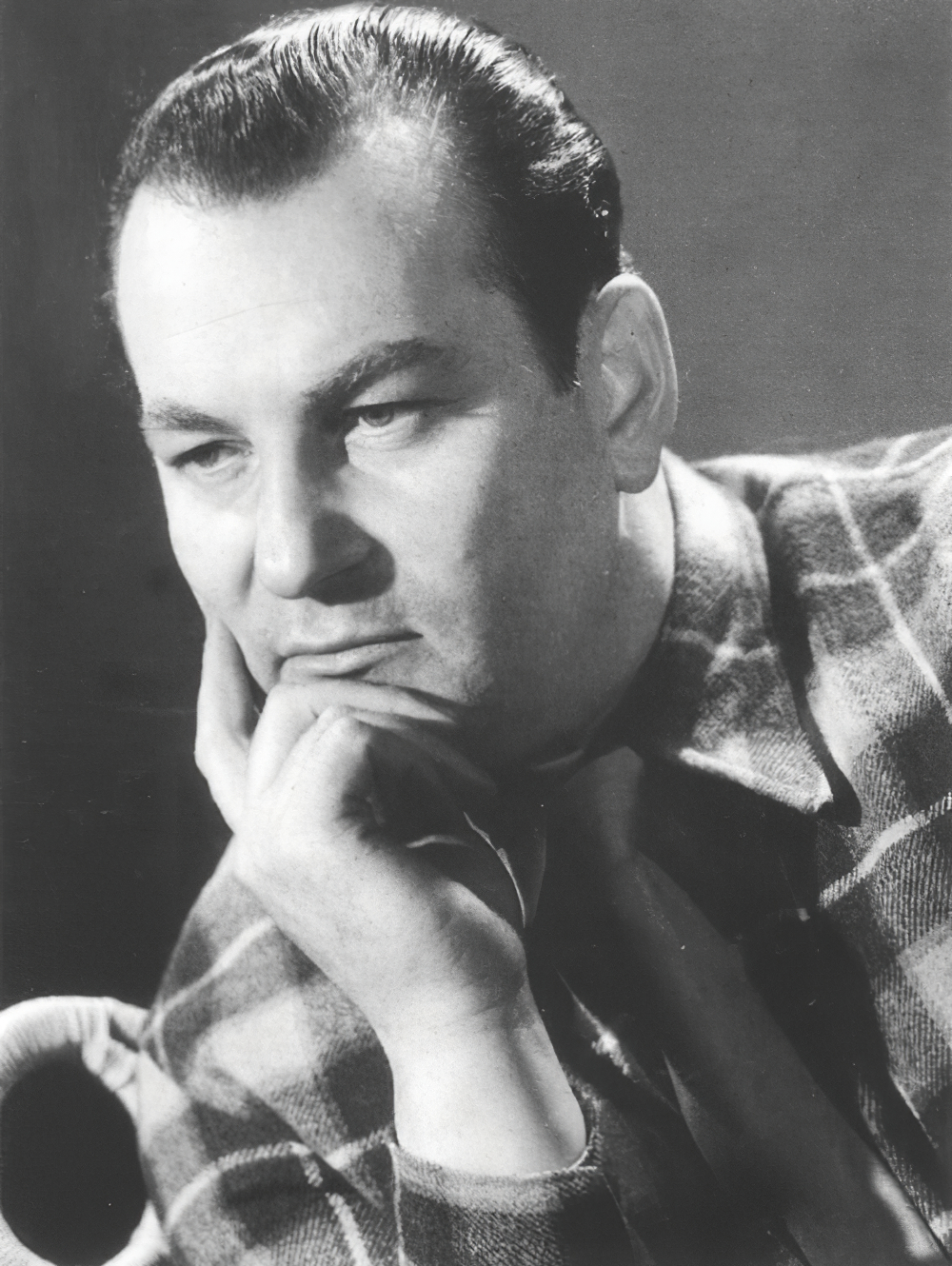
Mathieu Matégot was a Hungarian / French designer and material artist. He was one of the most renowned French designers of the 1950s.
Following the war, Matégot established a workshop for making handcrafted furniture using a variety of materials such as metal, rattan, glass, formica, and perforated sheet metal. The workshop made chairs, tables, sideboards, desks and other objects that he had designed. At first based in Paris, the workshop later moved to Casablanca. All the furniture and other objects had clever, practical and amusing designs. Distributed to decoration shops in editions of 200, his work was extremely successful.
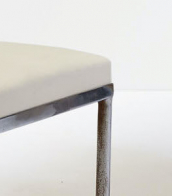

Mathieu Matégot was a Hungarian / French designer and material artist. He was one of the most renowned French designers of the 1950s.
Following the war, Matégot established a workshop for making handcrafted furniture using a variety of materials such as metal, rattan, glass, formica, and perforated sheet metal. The workshop made chairs, tables, sideboards, desks and other objects that he had designed. At first based in Paris, the workshop later moved to Casablanca. All the furniture and other objects had clever, practical and amusing designs. Distributed to decoration shops in editions of 200, his work was extremely successful.


Mathieu Matégot was a Hungarian / French designer and material artist. He was one of the most renowned French designers of the 1950s.
Following the war, Matégot established a workshop for making handcrafted furniture using a variety of materials such as metal, rattan, glass, formica, and perforated sheet metal. The workshop made chairs, tables, sideboards, desks and other objects that he had designed. At first based in Paris, the workshop later moved to Casablanca. All the furniture and other objects had clever, practical and amusing designs. Distributed to decoration shops in editions of 200, his work was extremely successful.


Mathieu Matégot was a Hungarian / French designer and material artist. He was one of the most renowned French designers of the 1950s.
Following the war, Matégot established a workshop for making handcrafted furniture using a variety of materials such as metal, rattan, glass, formica, and perforated sheet metal. The workshop made chairs, tables, sideboards, desks and other objects that he had designed. At first based in Paris, the workshop later moved to Casablanca. All the furniture and other objects had clever, practical and amusing designs. Distributed to decoration shops in editions of 200, his work was extremely successful.


Mathieu Matégot was a Hungarian / French designer and material artist. He was one of the most renowned French designers of the 1950s.
Following the war, Matégot established a workshop for making handcrafted furniture using a variety of materials such as metal, rattan, glass, formica, and perforated sheet metal. The workshop made chairs, tables, sideboards, desks and other objects that he had designed. At first based in Paris, the workshop later moved to Casablanca. All the furniture and other objects had clever, practical and amusing designs. Distributed to decoration shops in editions of 200, his work was extremely successful.


Mathieu Matégot was a Hungarian / French designer and material artist. He was one of the most renowned French designers of the 1950s.
Following the war, Matégot established a workshop for making handcrafted furniture using a variety of materials such as metal, rattan, glass, formica, and perforated sheet metal. The workshop made chairs, tables, sideboards, desks and other objects that he had designed. At first based in Paris, the workshop later moved to Casablanca. All the furniture and other objects had clever, practical and amusing designs. Distributed to decoration shops in editions of 200, his work was extremely successful.


Mathieu Matégot was a Hungarian / French designer and material artist. He was one of the most renowned French designers of the 1950s.
Following the war, Matégot established a workshop for making handcrafted furniture using a variety of materials such as metal, rattan, glass, formica, and perforated sheet metal. The workshop made chairs, tables, sideboards, desks and other objects that he had designed. At first based in Paris, the workshop later moved to Casablanca. All the furniture and other objects had clever, practical and amusing designs. Distributed to decoration shops in editions of 200, his work was extremely successful.
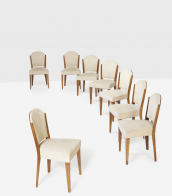

Mathieu Matégot was a Hungarian / French designer and material artist. He was one of the most renowned French designers of the 1950s.
Following the war, Matégot established a workshop for making handcrafted furniture using a variety of materials such as metal, rattan, glass, formica, and perforated sheet metal. The workshop made chairs, tables, sideboards, desks and other objects that he had designed. At first based in Paris, the workshop later moved to Casablanca. All the furniture and other objects had clever, practical and amusing designs. Distributed to decoration shops in editions of 200, his work was extremely successful.
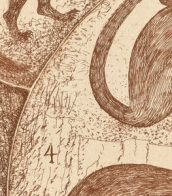

Mathieu Matégot was a Hungarian / French designer and material artist. He was one of the most renowned French designers of the 1950s.
Following the war, Matégot established a workshop for making handcrafted furniture using a variety of materials such as metal, rattan, glass, formica, and perforated sheet metal. The workshop made chairs, tables, sideboards, desks and other objects that he had designed. At first based in Paris, the workshop later moved to Casablanca. All the furniture and other objects had clever, practical and amusing designs. Distributed to decoration shops in editions of 200, his work was extremely successful.


Mathieu Matégot was a Hungarian / French designer and material artist. He was one of the most renowned French designers of the 1950s.
Following the war, Matégot established a workshop for making handcrafted furniture using a variety of materials such as metal, rattan, glass, formica, and perforated sheet metal. The workshop made chairs, tables, sideboards, desks and other objects that he had designed. At first based in Paris, the workshop later moved to Casablanca. All the furniture and other objects had clever, practical and amusing designs. Distributed to decoration shops in editions of 200, his work was extremely successful.


Mathieu Matégot was a Hungarian / French designer and material artist. He was one of the most renowned French designers of the 1950s.
Following the war, Matégot established a workshop for making handcrafted furniture using a variety of materials such as metal, rattan, glass, formica, and perforated sheet metal. The workshop made chairs, tables, sideboards, desks and other objects that he had designed. At first based in Paris, the workshop later moved to Casablanca. All the furniture and other objects had clever, practical and amusing designs. Distributed to decoration shops in editions of 200, his work was extremely successful.


Mathieu Matégot was a Hungarian / French designer and material artist. He was one of the most renowned French designers of the 1950s.
Following the war, Matégot established a workshop for making handcrafted furniture using a variety of materials such as metal, rattan, glass, formica, and perforated sheet metal. The workshop made chairs, tables, sideboards, desks and other objects that he had designed. At first based in Paris, the workshop later moved to Casablanca. All the furniture and other objects had clever, practical and amusing designs. Distributed to decoration shops in editions of 200, his work was extremely successful.


Mathieu Matégot was a Hungarian / French designer and material artist. He was one of the most renowned French designers of the 1950s.
Following the war, Matégot established a workshop for making handcrafted furniture using a variety of materials such as metal, rattan, glass, formica, and perforated sheet metal. The workshop made chairs, tables, sideboards, desks and other objects that he had designed. At first based in Paris, the workshop later moved to Casablanca. All the furniture and other objects had clever, practical and amusing designs. Distributed to decoration shops in editions of 200, his work was extremely successful.
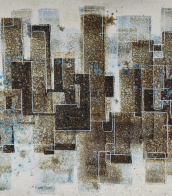

Mathieu Matégot was a Hungarian / French designer and material artist. He was one of the most renowned French designers of the 1950s.
Following the war, Matégot established a workshop for making handcrafted furniture using a variety of materials such as metal, rattan, glass, formica, and perforated sheet metal. The workshop made chairs, tables, sideboards, desks and other objects that he had designed. At first based in Paris, the workshop later moved to Casablanca. All the furniture and other objects had clever, practical and amusing designs. Distributed to decoration shops in editions of 200, his work was extremely successful.
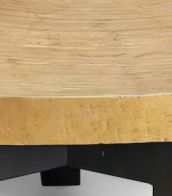

Mathieu Matégot was a Hungarian / French designer and material artist. He was one of the most renowned French designers of the 1950s.
Following the war, Matégot established a workshop for making handcrafted furniture using a variety of materials such as metal, rattan, glass, formica, and perforated sheet metal. The workshop made chairs, tables, sideboards, desks and other objects that he had designed. At first based in Paris, the workshop later moved to Casablanca. All the furniture and other objects had clever, practical and amusing designs. Distributed to decoration shops in editions of 200, his work was extremely successful.


Mathieu Matégot was a Hungarian / French designer and material artist. He was one of the most renowned French designers of the 1950s.
Following the war, Matégot established a workshop for making handcrafted furniture using a variety of materials such as metal, rattan, glass, formica, and perforated sheet metal. The workshop made chairs, tables, sideboards, desks and other objects that he had designed. At first based in Paris, the workshop later moved to Casablanca. All the furniture and other objects had clever, practical and amusing designs. Distributed to decoration shops in editions of 200, his work was extremely successful.
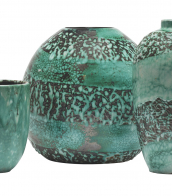

Mathieu Matégot was a Hungarian / French designer and material artist. He was one of the most renowned French designers of the 1950s.
Following the war, Matégot established a workshop for making handcrafted furniture using a variety of materials such as metal, rattan, glass, formica, and perforated sheet metal. The workshop made chairs, tables, sideboards, desks and other objects that he had designed. At first based in Paris, the workshop later moved to Casablanca. All the furniture and other objects had clever, practical and amusing designs. Distributed to decoration shops in editions of 200, his work was extremely successful.


Mathieu Matégot was a Hungarian / French designer and material artist. He was one of the most renowned French designers of the 1950s.
Following the war, Matégot established a workshop for making handcrafted furniture using a variety of materials such as metal, rattan, glass, formica, and perforated sheet metal. The workshop made chairs, tables, sideboards, desks and other objects that he had designed. At first based in Paris, the workshop later moved to Casablanca. All the furniture and other objects had clever, practical and amusing designs. Distributed to decoration shops in editions of 200, his work was extremely successful.
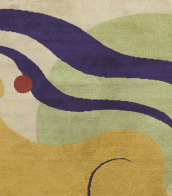

Mathieu Matégot was a Hungarian / French designer and material artist. He was one of the most renowned French designers of the 1950s.
Following the war, Matégot established a workshop for making handcrafted furniture using a variety of materials such as metal, rattan, glass, formica, and perforated sheet metal. The workshop made chairs, tables, sideboards, desks and other objects that he had designed. At first based in Paris, the workshop later moved to Casablanca. All the furniture and other objects had clever, practical and amusing designs. Distributed to decoration shops in editions of 200, his work was extremely successful.


Mathieu Matégot was a Hungarian / French designer and material artist. He was one of the most renowned French designers of the 1950s.
Following the war, Matégot established a workshop for making handcrafted furniture using a variety of materials such as metal, rattan, glass, formica, and perforated sheet metal. The workshop made chairs, tables, sideboards, desks and other objects that he had designed. At first based in Paris, the workshop later moved to Casablanca. All the furniture and other objects had clever, practical and amusing designs. Distributed to decoration shops in editions of 200, his work was extremely successful.


Mathieu Matégot was a Hungarian / French designer and material artist. He was one of the most renowned French designers of the 1950s.
Following the war, Matégot established a workshop for making handcrafted furniture using a variety of materials such as metal, rattan, glass, formica, and perforated sheet metal. The workshop made chairs, tables, sideboards, desks and other objects that he had designed. At first based in Paris, the workshop later moved to Casablanca. All the furniture and other objects had clever, practical and amusing designs. Distributed to decoration shops in editions of 200, his work was extremely successful.


Mathieu Matégot was a Hungarian / French designer and material artist. He was one of the most renowned French designers of the 1950s.
Following the war, Matégot established a workshop for making handcrafted furniture using a variety of materials such as metal, rattan, glass, formica, and perforated sheet metal. The workshop made chairs, tables, sideboards, desks and other objects that he had designed. At first based in Paris, the workshop later moved to Casablanca. All the furniture and other objects had clever, practical and amusing designs. Distributed to decoration shops in editions of 200, his work was extremely successful.


Mathieu Matégot was a Hungarian / French designer and material artist. He was one of the most renowned French designers of the 1950s.
Following the war, Matégot established a workshop for making handcrafted furniture using a variety of materials such as metal, rattan, glass, formica, and perforated sheet metal. The workshop made chairs, tables, sideboards, desks and other objects that he had designed. At first based in Paris, the workshop later moved to Casablanca. All the furniture and other objects had clever, practical and amusing designs. Distributed to decoration shops in editions of 200, his work was extremely successful.


Mathieu Matégot was a Hungarian / French designer and material artist. He was one of the most renowned French designers of the 1950s.
Following the war, Matégot established a workshop for making handcrafted furniture using a variety of materials such as metal, rattan, glass, formica, and perforated sheet metal. The workshop made chairs, tables, sideboards, desks and other objects that he had designed. At first based in Paris, the workshop later moved to Casablanca. All the furniture and other objects had clever, practical and amusing designs. Distributed to decoration shops in editions of 200, his work was extremely successful.


Mathieu Matégot was a Hungarian / French designer and material artist. He was one of the most renowned French designers of the 1950s.
Following the war, Matégot established a workshop for making handcrafted furniture using a variety of materials such as metal, rattan, glass, formica, and perforated sheet metal. The workshop made chairs, tables, sideboards, desks and other objects that he had designed. At first based in Paris, the workshop later moved to Casablanca. All the furniture and other objects had clever, practical and amusing designs. Distributed to decoration shops in editions of 200, his work was extremely successful.


Mathieu Matégot was a Hungarian / French designer and material artist. He was one of the most renowned French designers of the 1950s.
Following the war, Matégot established a workshop for making handcrafted furniture using a variety of materials such as metal, rattan, glass, formica, and perforated sheet metal. The workshop made chairs, tables, sideboards, desks and other objects that he had designed. At first based in Paris, the workshop later moved to Casablanca. All the furniture and other objects had clever, practical and amusing designs. Distributed to decoration shops in editions of 200, his work was extremely successful.


Mathieu Matégot was a Hungarian / French designer and material artist. He was one of the most renowned French designers of the 1950s.
Following the war, Matégot established a workshop for making handcrafted furniture using a variety of materials such as metal, rattan, glass, formica, and perforated sheet metal. The workshop made chairs, tables, sideboards, desks and other objects that he had designed. At first based in Paris, the workshop later moved to Casablanca. All the furniture and other objects had clever, practical and amusing designs. Distributed to decoration shops in editions of 200, his work was extremely successful.


Mathieu Matégot was a Hungarian / French designer and material artist. He was one of the most renowned French designers of the 1950s.
Following the war, Matégot established a workshop for making handcrafted furniture using a variety of materials such as metal, rattan, glass, formica, and perforated sheet metal. The workshop made chairs, tables, sideboards, desks and other objects that he had designed. At first based in Paris, the workshop later moved to Casablanca. All the furniture and other objects had clever, practical and amusing designs. Distributed to decoration shops in editions of 200, his work was extremely successful.


Mathieu Matégot was a Hungarian / French designer and material artist. He was one of the most renowned French designers of the 1950s.
Following the war, Matégot established a workshop for making handcrafted furniture using a variety of materials such as metal, rattan, glass, formica, and perforated sheet metal. The workshop made chairs, tables, sideboards, desks and other objects that he had designed. At first based in Paris, the workshop later moved to Casablanca. All the furniture and other objects had clever, practical and amusing designs. Distributed to decoration shops in editions of 200, his work was extremely successful.


Mathieu Matégot was a Hungarian / French designer and material artist. He was one of the most renowned French designers of the 1950s.
Following the war, Matégot established a workshop for making handcrafted furniture using a variety of materials such as metal, rattan, glass, formica, and perforated sheet metal. The workshop made chairs, tables, sideboards, desks and other objects that he had designed. At first based in Paris, the workshop later moved to Casablanca. All the furniture and other objects had clever, practical and amusing designs. Distributed to decoration shops in editions of 200, his work was extremely successful.

